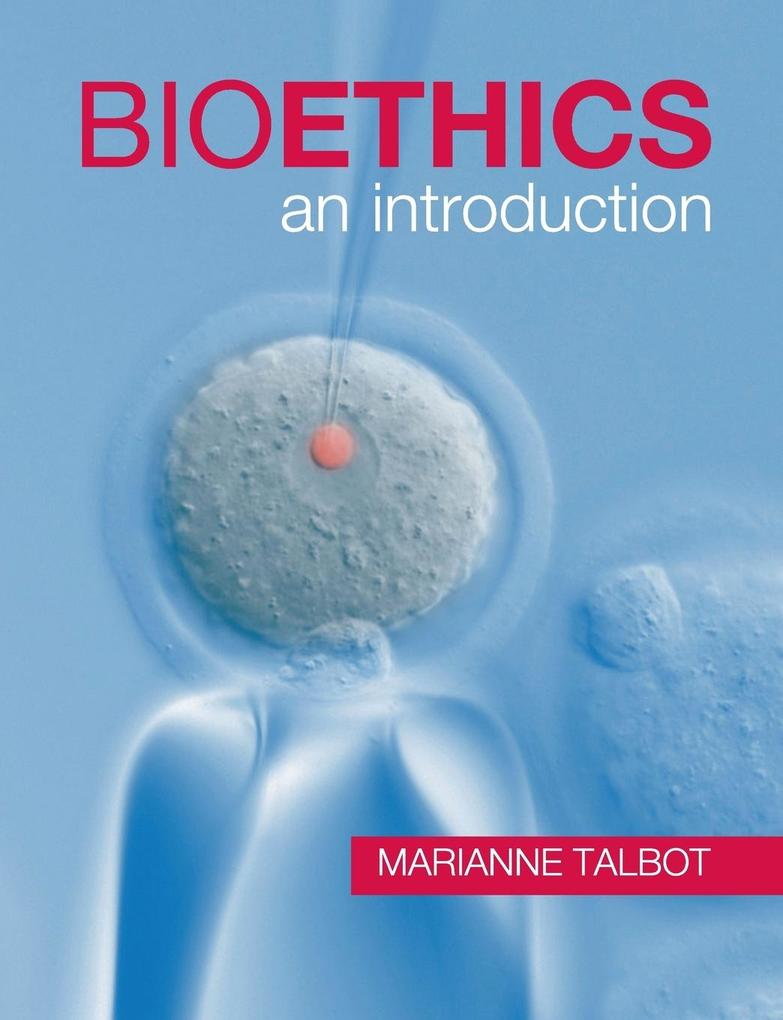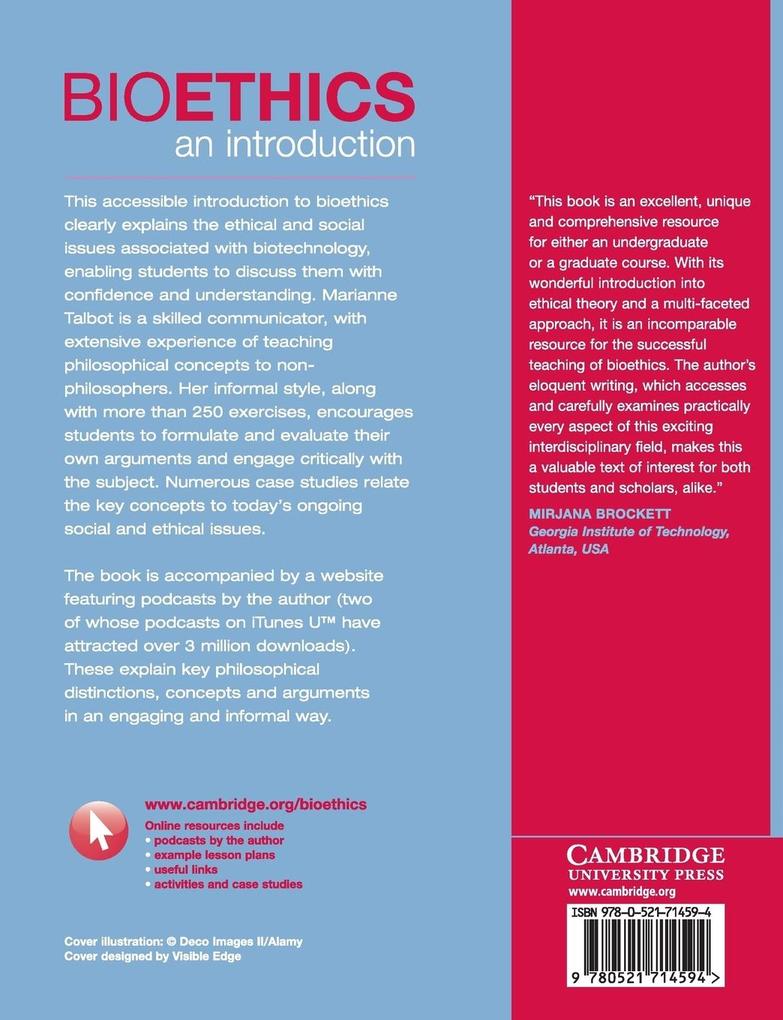
Zustellung: Mi, 11.06. - Sa, 14.06.
Versand in 6 Tagen
VersandkostenfreiBestellen & in Filiale abholen:
This book clearly explains bioethical issues and their philosophical foundations to science students, encouraging critical thinking about the ethics of biotechnology.
Inhaltsverzeichnis
Preface; Using this book; Notes for instructors; Part I. Bioethics and Ethics: 1. Biotechnology and bioethics: what it's all about; 2. Ethics in general: ethics, action and freedom; 3. Ethics in the context of society: ethics, society and the law; 4. Ethical theories: virtue, duty and happiness; 5. Identifying and evaluating arguments: logic and morality; 6. General arguments: unnatural, disgusting, risky, only opinion; Part II. The Beginning and End of Life; Section 1. Cloning: 7. Therapeutic cloning: the moral status of embryos; 8. Reproductive cloning: science and science fiction; Section 2. Reproduction: 9. Reproductive freedom: rights, responsibilities and choice; 10. The resources of reproduction: eggs, sperm and wombs for sale; 11. Screening and embryo selection: eliminating disorders or people?; Section 3. Ageing and Death: 12. Ageing and immortality: the search for longevity; 13. Death and killing: the quality and value of life; Part III. In the Midst of Life; Section 1. Our Duties to Ourselves: 14. Human enhancement: the more the better?; 15. Bio-information: databases, privacy and the fight against crime; 16. Security and defence: security sensitivity, publication and warfare; Section 2. Our Duties to Each Other: 17. Food and energy security: GM food, biofuel and the media; 18. Bio-ownership: who owns the stuff of life?; 19. Human justice: the developed and developing worlds; Section 3. Our Duties to Nature: 20. Non-human animals: consciousness, rationality and animal rights; 21. The living and non-living environment: spaceship Earth; Index.
Produktdetails
Erscheinungsdatum
06. März 2019
Sprache
englisch
Seitenanzahl
480
Autor/Autorin
Marianne Talbot
Verlag/Hersteller
Produktart
kartoniert
Gewicht
920 g
Größe (L/B/H)
246/189/26 mm
ISBN
9780521714594
Entdecken Sie mehr
Pressestimmen
'This book is an excellent, unique and comprehensive resource for either an undergraduate or a graduate course. With its wonderful introduction into ethical theory and a multifaceted approach, it is an incomparable resource for the successful teaching of bioethics. The author's eloquent writing . . . carefully examines practically every aspect of [this] exciting interdisciplinary [field] . . . a valuable reading of interest for both students and scholar[s], alike.' Mirjana Brockett, Georgia Institute of Technology, Atlanta
Bewertungen
0 Bewertungen
Es wurden noch keine Bewertungen abgegeben. Schreiben Sie die erste Bewertung zu "Bioethics" und helfen Sie damit anderen bei der Kaufentscheidung.









